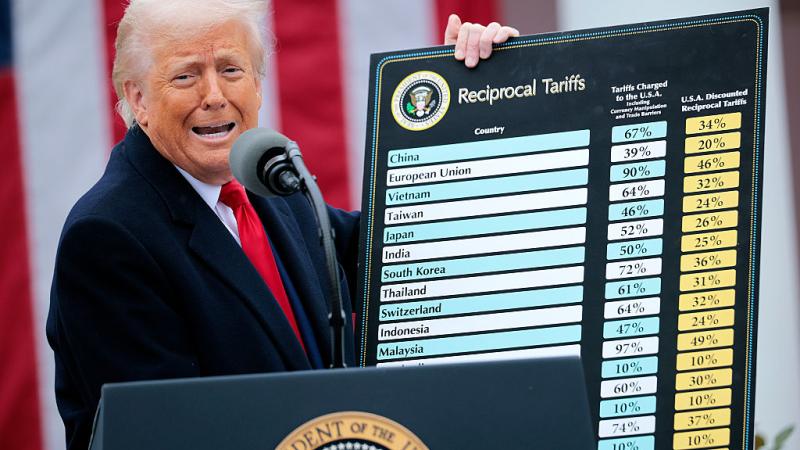Phillips 66 says activist investor pushing major changes has a conflict of interest with Citgo bid
Elliott Investment Management argues that streamlining Phillips 66 would improve the company's performance, but critics point out that Elliott is in a bidding competition to acquire Citgo, which is a major competitor with Phillips 66.
Activist hedge fund Elliott Investment Management is pushing a proposal that would have Phillips 66 spin off or sell off a chunk of its business as part of a bid that Elliott argues would improve the business’s performance.
Critics charge that Elliott, which manages approximately $72.7 billion in assets, wants to break up the company because Amber Energy, a company Elliott wholly owns, is in a bidding competition to acquire Citgo. As the seventh largest refiner in the U.S., Citgo competes directly with Phillips 66. If the proposal were followed, critics say, it would undermine Phillips 66 and strengthen Citgo’s position in the market. Elliot built up a $2.5 billion stake in Phillips 66, according to the Associated Press. This makes them one of the company's top five investors.
“This conflict is concerning because Amber Energy’s executives are actively helping support Elliott’s case to undermine Phillips 66’s strategy,” Phillips 66 stated in a letter to shareholders Monday.
Elliot claims the company is underperforming
Elliott argues that its proposal is driven by a desire to see its $2.5 billion investment in Phillips 66 improve. The company is underperforming compared to its peers, Elliott explains in a slide deck on the proposal, and by selling or spinning off its midstream assets, which include the infrastructure involved in the transportation of petroleum products such as pipelines, Phillips 66 would streamline its business and run more efficiently.
How the dispute plays out could have wide impacts across the country. U.S. refineries are a valuable key asset in America's energy infrastructure. According to the American Fuel and Petrochemical Manufacturers, refineries contribute directly and indirectly $688 billion to the nation’s GDP and employ nearly 3 million people. The number of refineries in the U.S. has declined from a high of 301 in 1982 to 132 today. Though fossil fuel consumption has grown exponentially over the last 40 years, output at America’s refineries has increased from about 17.9 million barrels per day to 18.4 million barrels per day — a 3% increase.
Phillips 66 owns 13 refineries with a net crude oil capacity of 2.2 million barrels per day. In 2024, they had a refining throughput capacity of 1.84 million barrels per day.
Venezuela expropriates oil and gas assets
More than a decade ago, former Venezuelan President Nicolás Maduro carried out a wave of expropriation that included assets from a number of oil and gas companies. In 2017, Canadian gold miner Crystallex won an arbitration case, according to Reuters, which allowed other creditors in similar situations to join. In 2023, the courts ordered an auction of Venezuela-controlled Citgo’s assets.
After a year-long bidding process, the auction was relaunched in January after arguments over Citgo’s worth and parallel legal cases collapsed the process. In the next round of bidding, the court set a minimum bid for shares in PDV Holding, the parent of Citgo, after creditors rejected a higher winning offer of nearly $7.3 billion from Elliott over conditions the bid included.
On Tuesday, a Delaware judge, Reuters reported, approved a $3.7 billion offer from Contrarian Funds’ affiliate Red Tree Investments in the latest round. A final hearing to select the winning bid in the auction is scheduled for July, and it’s unclear if Elliott will come back with another bid or if it will ultimately emerge successful.
Proxy battle and allegations of conflict of interest
In a podcast promoting its streamlining proposal, John Pike, who runs Elliott’s global energy practice and is leading the Phillips 66 investment, argued that, as with other campaigns involving other companies that the activist fund launched, Phillips 66 has operational and stock price underperformance, as well as capital allocation problems where a collection of assets don’t make sense together.
Elliott won support in the proxy battle earlier this month from one of Phillips 66’s key investors, Gregory Goff. According to Bloomberg News, Goff — who is a former executive of Phillips 66’s predecessor, ConocoPhillips — said in a letter that the company had “lost its way,” which would require “operational and strategic changes.”
In a response to Goff's letter, Phillips 66 pointed out that Goff is affiliated with Elliott as CEO of Amber Energy. “This important and obvious fact about a clear conflict of interest was never mentioned in Mr. Goff’s communication and is plainly misleading to shareholders. The notion he is an investor independent of Elliott is obviously false. This stunt reflects Elliott’s growing desperation to convince real investors to support its shortsighted, rushed breakup of Phillips 66,” the company said.
In a Securities and Exchange Commission filing, Elliott maintains that there was never an attempt to hide Goff’s work alongside Elliott, which was disclosed in a press release. In a separate filing, the investment firm said Goff has not and will not receive compensation from Elliott with respect to the company or its proxy solicitation, other than payment for expenses.
‘Peculiar’ engagement
Last month, The Wall Street Journal reported that Elliott filed a lawsuit against Phillip 66 to require that four board seats be put up for reelection, claiming the company hadn’t given enough information about how many seats would be up for a vote, which the suit argued violated shareholder rights. According to an Elliott proxy statement, Elliott nominated Brian Coffman, Sigmund Cornelius, Michael Heim and Stacy Nieuwoudt.
Phillips 66 nominated four candidates of its own at its annual meeting in May, which included two new nominees — energy industry veteran Nigel Hearne and former Dow Inc. executive Howard Ungerleider. It also nominated current board members John Lowe and Bob Pease for reelection. Elliott has said it intends to withdraw the lawsuit if at least four seats are put up for election at the annual meeting.
In 2024, Elliott had pressured Phillips 66 to name Pease to its board, The Wall Street Journal reported at the time. In a letter to shareholders last month, Pease explained that he had joined the Board of Directors with concerns that his endorsement from a “well-known activist hedge fund” might not be welcomed by other board members. He said that turned out not to be the case.
Contrary to Elliott’s arguments for its streamlining proposal, Pease said, the board has delivered strong operational performance while considering opportunities to create value across its full portfolio. Phillips 66’s integrated model, Pease wrote, delivered synergies between the businesses and less volatile cash flows, which provides a competitive advantage. Along with ambitious goals, the company grew with mergers and acquisitions, and it grew dividends.
Pease called Elliott’s engagement “inconsistent” and “peculiar.” He said Elliott would have “long silences, followed by rapid public action.” While the board, Pease argued, was trying to get to the right answer, it struggled to engage with a “highly distracted shareholder in Elliott.”
“We have only been met with a declaration that there were ‘no next steps’ and then continued public assaults, even while Elliott refused to allow us to meet their nominees. Then came their notification that Elliott would in fact be running four nominees for election at the 2025 Annual General Meeting. With my re-nomination to the Board confirmed, that meant I would be targeted for replacement by Elliott’s nominees, just a year after they publicly supported me. I do not know why Elliott now wants me off the Board,” Pease said.
Connecting the dots
In a 2017 op-ed in The Wall Street Journal, Elliott founder and co-CEO Paul Singer stated, “Our currency is our credibility. If our activism did not create long and short-term value, we would have a hard time persuading management, boards and other shareholders even to listen to us, much less implement our ideas.”
If Elliott’s streamlining proposal is a means to undermine competition against Citgo, which is still in a bidding competition with over a dozen other creditors, it would be risking its reputation and a $2.5 billion investment in Phillips 66 for an asset it may never control. Criticisms of the proposal, such as those laid out in Pease’s letter, require fewer dots to be connected.
Shareholders will ultimately decide the merits of the arguments Elliot and Phillips 66 have put forth in the proxy battle. Whatever the outcome, hopefully it turns out to be the best for the nation’s key energy assets in the Gulf of America.
The Facts Inside Our Reporter's Notebook
Links
- Elliott Investment Management
- Phillips 66
- manages approximately $72.7 billion in assets
- seventh largest refiner
- according to the Associated Press
- Phillips 66 stated in a letter to shareholders
- Elliott explains
- According to the American Fuel and Petrochemical Manufacturers
- number of refineries in the U.S.
- increased from about 17.9 million barrels
- carried out a wave of expropriation
- according to Reuters
- auction of Venezuela-controlled Citgoâs assets
- Reuters reported
- promoting its streamlining proposal
- John Pike
- According to Bloomberg
- CEO of Amber Energy
- Elliott maintains
- separate filing
- The Wall Street Journal reported
- According to an Elliott proxy statement
- nominated four candidates
- intends to withdraw the lawsuit
- The Journal reported
- Pease explained
- The Wall Street Journal















